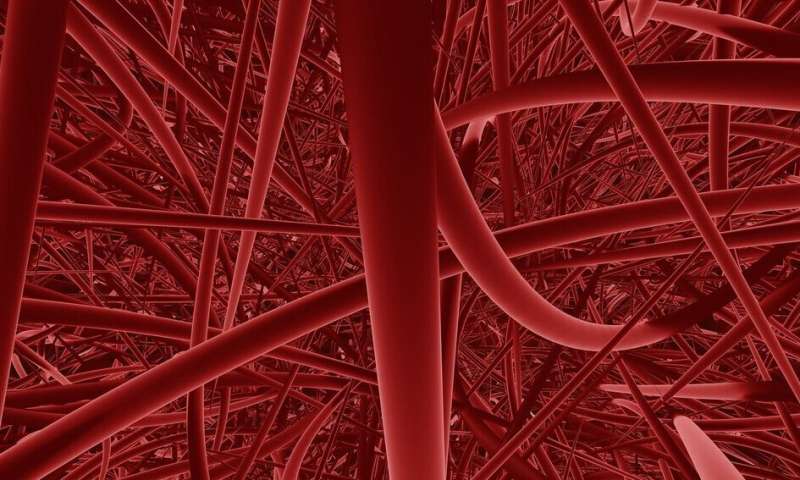Systematic literature review provides evidence base for new therapeutic avenues in vasculitis

Researchers have reviewed all clinical trials of targeted drugs used in the treatment of vasculitis. With this, they propose a completely mechanistic categorisation of these diseases, which may in time provide better treatment.
Diseases which cause inflammation of the blood vessels are presently categorized according to the size of the blood vessels involved. But it would make more sense—and ultimately end with better treatment—if the diseases were categorized based on the causes of the inflammation.
This is shown by a systematic literature review of clinical trials in vasculitis, which researchers from Aarhus University are behind.
The new categorisation provides both the opportunity to develop new medicines and to test existing drugs in new ways, says Associate Professor at the Department of Biomedicine Tue Wenzel Kragstrup.
"We're dealing with a group of immune mediated inflammatory diseases that must be treated in very different ways. We've made so much progress with the clinical trials now that we can use them to learn about understanding of diseases and the underlying immunology," he says.
The researchers have reviewed the latest clinical studies for drugs within the group of autoimmune diseases called vasculitis (inflammation of the blood vessels). At present, the group of diseases is divided anatomically according to the size of the blood vessels that are being affected. However, the old classification criterion does not reflect the cause of the disease, which is immunological.
"Some of the diseases that were previously classified as being very similar, actually turn out to be quite different. They affect the same kind of blood vessels but there are significant differences in the response to different treatments," explains Christopher Kirkegaard Torp who is first author on the study.
"Once you know the cause of a disease, it becomes easier to develop new medicines or test existing drugs for the disease in question. The new categorisation can help patients, doctors and researchers to a better understanding and thereby better treatment," Kragstrup says.
Effective drugs must be tested on other diseases
The study is limited to the diseases which are treated with an EMA or FDA-approved drug (approved by the European Commission or The Food and Drug Administration of the United States), which means that the researchers have studied ten drugs. Their use has provided new information about the underlying pathogenic mechanisms of five different types of vasculitis.
"We now have a whole catalog of targeted immunosuppressants in rheumatology, but only a few have been approved for vasculitis. Our review highlights the immunological aspects of different types of vasculitis. This paves the way for clinical trials with other drugs targeting adjacent immunological abnormalities to identify new treatment options for the patients," says Kragstrup.
More information: Christopher Kirkegaard Torp et al, Vasculitis therapy refines vasculitis mechanistic classification, Autoimmunity Reviews (2021). DOI: 10.1016/j.autrev.2021.102829

















